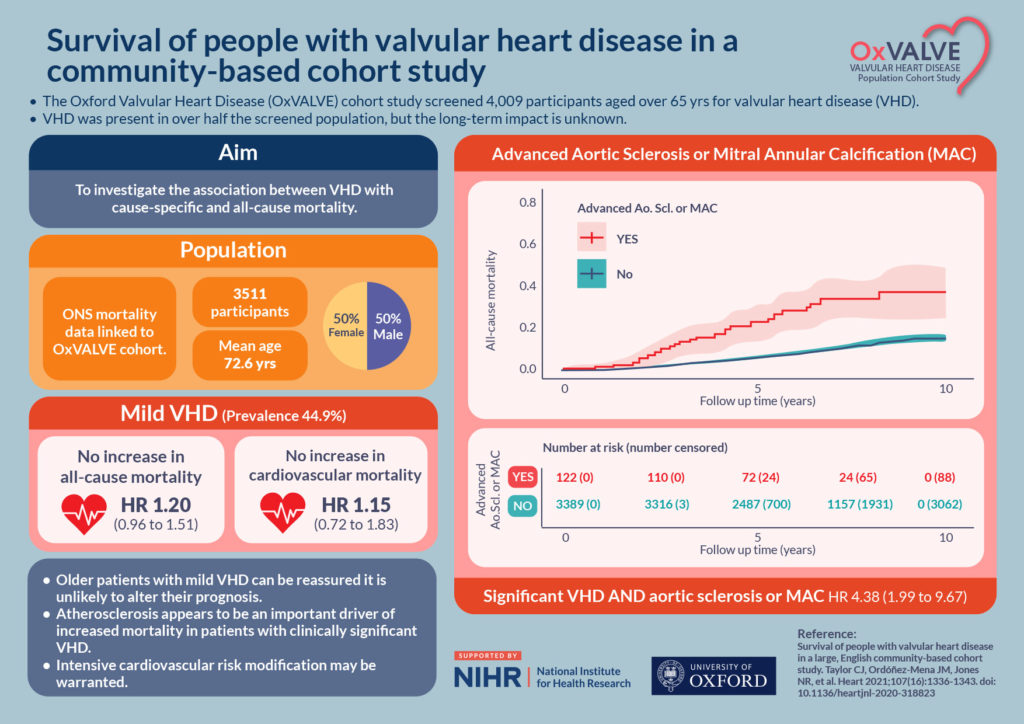
Academic GPs Dr Clare Taylor and Dr Nick Jones (pictured) from the University of Oxford’s Nuffield Department of Primary Care Health Sciences outline the findings of the OxVALVE-Survive study and implications for their own clinical practice.
Valvular heart disease occurs when valves become either narrowed (stenosis) or leaky (regurgitation). An echocardiogram, or ‘echo’, is an ultrasound scan of the heart used to assess the structure and function of the heart overall, and of the individual valves.
The scans are done by highly trained echo technicians and the reports can be detailed. As GPs, we often receive echo reports which have found mild valvular heart disease, particularly in older patients.
The OxVALVE cohort study, led by cardiologists Professor Bernard Prendergast and Professor Saul Myerson, recruited more than 4,000 people aged 65 and over from GP surgeries in Oxfordshire to assess the prevalence of valvular heart disease. All participants had an echo assessment and over half were found to have some form of valvular heart disease, most of which was mild.
In the OxVALVE-Survive study, which is supported by the NIHR Oxford BRC, we worked with the OxVALVE team to explore the long-term outlook of people in the original cohort.
We created linkage between the OxVALVE study and Office for National Statistics mortality data through a data sharing agreement with NHS Digital. This enabled us to look at both survival times and causes of death for all participants who had died since the start of the study.
We found that for people with mild valvular heart disease there was no increase in all-cause mortality. However, for participants with aortic sclerosis or mitral annular calcification, often associated with atherosclerosis or ‘hardening of the arteries’, there was an increased risk of death overall. Furthermore, the small number of people with both moderate-severe valvular heart disease and atherosclerotic valve abnormalities had the highest risk of all.
So, what do the findings from OxVALVE-Survive mean for patients and GPs? Well, the take home message for us is that patients with mild valvular heart disease on their echo report can be reassured that it is unlikely to affect long-term outcome.
Atherosclerotic valve disease has previously been thought of as benign because it does not have a functional effect, but our results highlight its prognostic importance. We need more research to understand the underlying mechanisms and determine whether measures such cholesterol-lowering therapy could make a difference to outcome.
